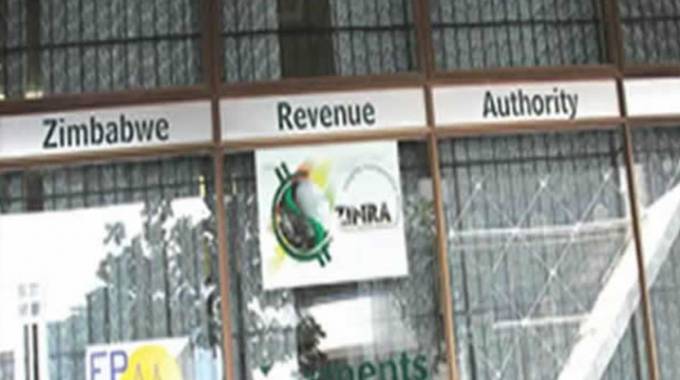
The Sunday Mail

The Zimbabwe Revenue Authority (Zimra), which is owed a massive US$4,3 billion by taxpayers, fears the debt may be difficult to recover due to a number of factors, including operational challenges faced by companies.
Zimra Commissioner General, Ms Faith Mazani recently said the debt has largely accrued from penalties charged on defaulting tax payers.
Ms Mazani told The Sunday Mail Business last week that as at May 31, 2018, Zimra was owed just over US$4,3 billion.
The principal was US$2,2 billion; penalty was just over US$981 million and interest was US$1,18 billion.
Recently, Ms Mazani said the national tax collector was unable to meaningfully collect revenue due to the absence of instruments to force taxpayers to honour their obligations.
Zimra could only resort to garnishing accounts of defaulting taxpayers and imposing hefty penalties but cannot do anything if the defaulters close the accounts.
Statutory Instrument 97 of 2013 on Revenue Authority (Civil Penalty for Late Submission of Returns) Regulations, 2013, provides for penalties to be charged on defaulting taxpayers.
SI 97 of 2013 came into effect on June 28, 2013.
But both the garnishee orders and fines have negatively impacted on the operations of companies, some of which have since closed shop, while others are tottering on the brink of collapse.
Said Ms Mazani: “We are sitting with a very huge debt and it’s uncharacteristic of revenue administration . . . it is to a great extent reflecting the level of compliance.
“We have had some challenges. We are trying to come up with a realistic debt position. Because of the limited capacity, we have to enforce compliance, Zimra has had to resort to penalties but as they were doing that, they found themselves with an amount which many not be collectable.”
Industrialists call for debt review
Manufacturers, who say they are battling to remain afloat due to a raft of challenges dramatised by biting foreign currency shortages and high production costs, among others, have been engaging Zimra to find a lasting solution.
Last week, Zimbabwe National Chamber of Commerce (ZNCC) president, Dr Divine Ndhlukula said some of the debts being pursued by Zimra date as far back as the hyperinflationary period.
Dr Ndhlukula came short of calling for debt forgiveness but indicated that industrialists are currently confronted with an “abnormal” operating environment, which calls on Zimra to sober up on its approach to debt collection.
“We have been engaging Zimra in the past over this debt and even this amnesty, which expires soon is a result of our engagements. But going into the future, we need to analyse when these debts were incurred because some of them are from the hyperinflationary period.
“At the moment, companies are struggling to operate because of the foreign currency situation where industrialists are paying a premium of 60 percent,” said Dr Ndhlukula.
As part of efforts to encourage clients to regularise their tax affairs, Government, through the Finance Act No. 1 of 2018 published on March 2018, provided for the granting of a tax amnesty to companies and individuals on application.
Companies and individuals with unpaid taxes or duty by December 1, 2017 are eligible to apply for the tax amnesty.
The deadline for tax amnesty applications is June 30, 2018.
Taxes covered by the amnesty are mentioned in the Income Tax Act (Chapter 23:06); Value Added Tax Act (Chp. 23:12); Capital Gains Tax Act (Chp. 23:01); Customs and Excise Act (Chp. 23:02); Stamp Duties Act (Chp. 23:09); Betting and Totalizator Control Act (Chap. 10:02) and Tax Reserve Certificates Act (Chapter 23:10).
The number of applications Zimra has so far received could not be established by the time of going to print.
Ms Mazani said the law allows the Commissioner General to waive penalties imposed on taxpayers for any offence committed in terms of the different tax and customs laws.
“Zimra is therefore considering waiving penalties which are part of the tax debt even beyond the 30 June deadline to those taxpayers that come forward to make payment terms.
“However, interest on the principal tax amounts outstanding after the amnesty period on 30 June cannot be waived. Penalties will only be applied in exceptional situations on delinquent clients who do not want to provide the requisite information, who do not file their returns or who are proven to be unwilling to honour their fiscal obligations.”
Not peculiar to Zimbabwe
While Zimra is owed huge sums of money, it is not the only tax collector in the region struggling to convince taxpayers to honour their obligations.
The South African Revenue Service (SARS) announced in April this year that it was owed about R30 million (US$2,2 million) in tax returns by active taxpayers.
But SARS said it was roping in the National Prosecuting Authority (NPA) to prosecute non-compliant firms and individuals, who include well-known South Africans, that have failed to submit returns.
According to the initiative, any taxpayers found guilty would have a criminal record. A couple of convictions have since been achieved, with some offenders charged admission of guilt fines of up to R5 600, for non-submission of over 50 outstanding Value-Added Tax (VAT), Pay-As-You-Earn (PAYE) and Corporate Income Tax (CIT) returns.
South Africa’s Tax Administration Act and Value-Added Tax law criminalises failure to submit a tax or VAT returns.
Resorting to criminal prosecution to enforce compliance is the last resort in South Africa.





